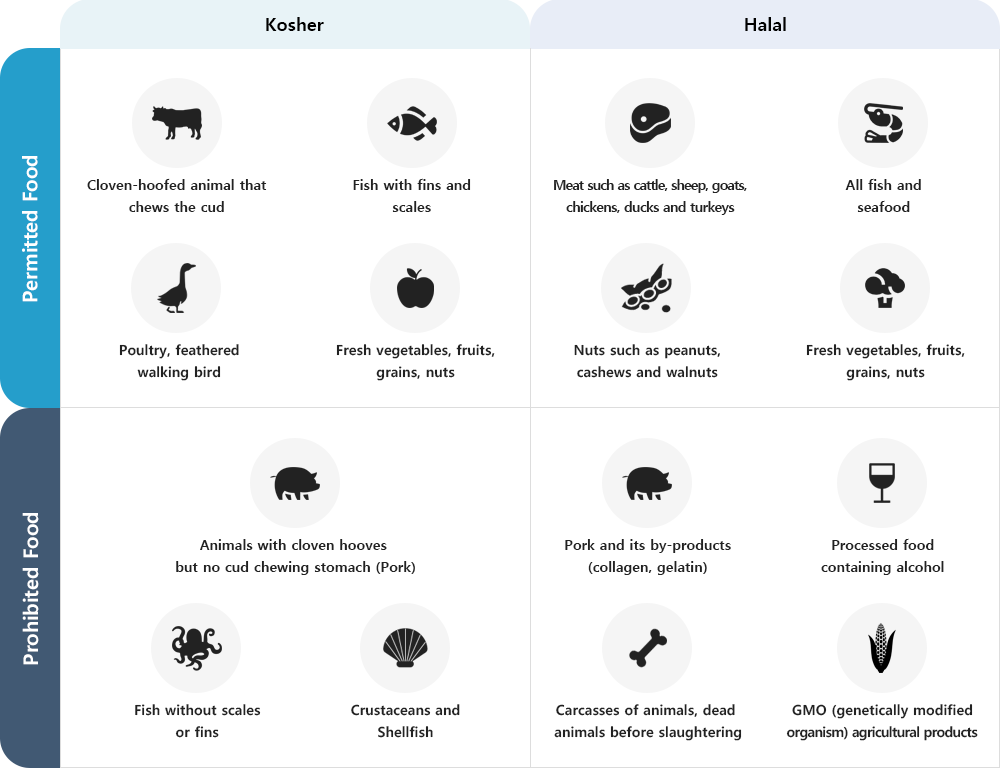Kosher vs Halal

-
Similarities
ㆍ Swine prohibited by both sets of beliefs.
ㆍ Many animals permitted in kashrut are also halal, such as bovines.
ㆍ To be kosher, aquatic animals must have scales and fins. Most Muslim schools of thought adhere to the interpretation that all creatures from the ocean or the sea or lake are considered halal. Shi’ites however consider that only sea creatures that have scales are halal, but make an exception with some crustaceans; shrimps and prawns. This is similar to the Jewish law with the exception of fins.
ㆍ Gelatins only permissible if it comes from a permissible animal (usually kosher gelatin comes from the bones of kosher fish, or is a vegan substitute, such as agar). Judaism finds that only gelatin made from kosher animals and/or kosher fish are in essence “kosher gelatins.”
ㆍ Almost all insects are prohibited by both sets of law, although of the Maliki school of Islam permits eating insects, with the condition of it being dead by any means. The few kosher insects are specific types of locusts and grasshoppers (see Kosher locust) which are not eaten today in most Jewish communities, since it is unknown which species is permitted; however, all types of locusts are considered halal. -
Differences
ㆍ For a substance to be halal, it must not contain alcohol of any kind. However, there is a difference drawn between the addition of alcohol to foods, which is absolutely forbidden, and the small quantities that naturally become present – such as orange juice.
ㆍ Except for grape wine, grape juice and grape extracts (which must be manufactured under Jewish supervision), kashrut allows the consumption of any sort of alcohol, as long as it has kosher ingredients.
ㆍ The list of animals forbidden by kashrut is more restrictive, as kashrut requires that, to be kosher, mammals must chew cud and must have cloven hooves. Thus some animals such as the camel are halal, but not kosher.
ㆍ Kashrut requires strict separation of dairy and meat products, even when they are kosher separately.
-
Kosher
Dietary requirements based on ingredients and requirements on production equipment according to the dictates of Jewish law. More
-
Halal
Requirements for ingredients, human resources, production equipment and food hygiene according to UAE.S 2055-1 Halal Food National Standard at United Arab Emirates. More


